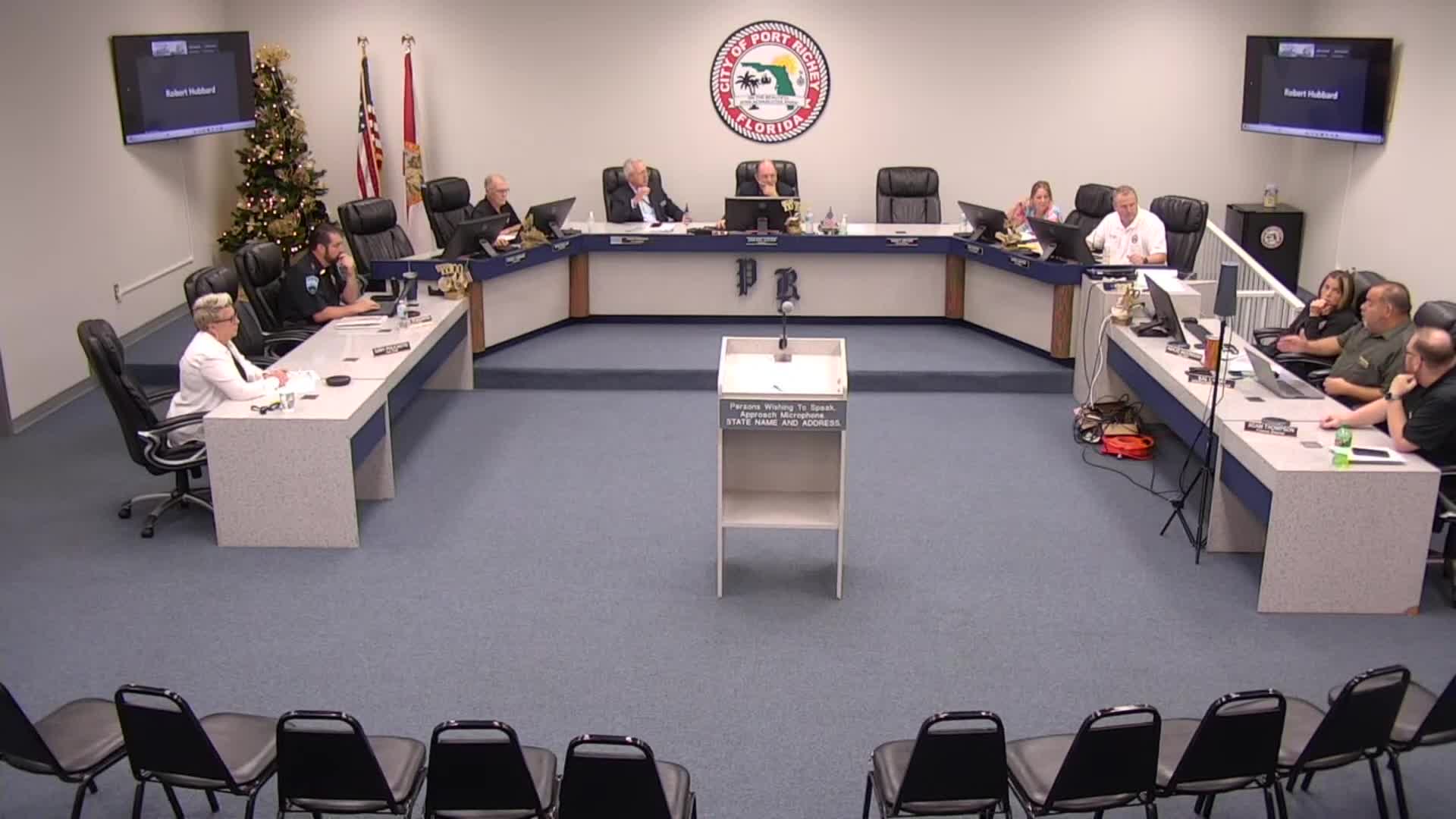Port Richey Council Approves Return to PRM Health Trust Amid Insurance Concerns
August 01, 2025 | Port Richey City, Pasco County, Florida
This article was created by AI summarizing key points discussed. AI makes mistakes, so for full details and context, please refer to the video of the full meeting. Please report any errors so we can fix them. Report an error »

In a recent special meeting held on August 1, 2025, the Port Richey City Council engaged in a critical discussion regarding the city's health insurance plan, highlighting significant concerns over rising costs and the potential for self-insurance. The meeting underscored the financial strain on the city’s budget, with council members expressing frustration over the current insurance model, which they described as a "broken system."
The council revealed that the city is currently billed approximately $720,000 annually for health insurance, yet the actual payouts are believed to be significantly lower, potentially around $350,000. This discrepancy raised questions about the effectiveness of the existing insurance provider, Marsh McLennan, and whether the city should consider self-insuring to better manage costs. Council members noted that the current plan limits employees' ability to add family members, further complicating the situation and contributing to dissatisfaction among staff.
During the discussions, council members emphasized the need for a more transparent and cost-effective approach to health insurance. They proposed exploring self-insurance options, which could allow the city to retain more control over its healthcare expenditures. The idea of joining a larger insurance pool with neighboring municipalities was also suggested as a way to reduce costs through economies of scale.
The council ultimately voted to rejoin the PRM Group Health Trust with Florida Blue as the insurance carrier, while also committing to investigate self-insurance and other alternatives moving forward. This decision reflects a proactive approach to addressing the city's financial challenges and ensuring that employees have access to affordable healthcare options.
As the city prepares for open enrollment, council members acknowledged the urgency of exploring these options, with plans to gather more information and potentially implement changes in the upcoming fiscal year. The discussions highlighted a broader trend among municipalities seeking to balance employee benefits with fiscal responsibility, a challenge that many local governments are currently facing.
The council revealed that the city is currently billed approximately $720,000 annually for health insurance, yet the actual payouts are believed to be significantly lower, potentially around $350,000. This discrepancy raised questions about the effectiveness of the existing insurance provider, Marsh McLennan, and whether the city should consider self-insuring to better manage costs. Council members noted that the current plan limits employees' ability to add family members, further complicating the situation and contributing to dissatisfaction among staff.
During the discussions, council members emphasized the need for a more transparent and cost-effective approach to health insurance. They proposed exploring self-insurance options, which could allow the city to retain more control over its healthcare expenditures. The idea of joining a larger insurance pool with neighboring municipalities was also suggested as a way to reduce costs through economies of scale.
The council ultimately voted to rejoin the PRM Group Health Trust with Florida Blue as the insurance carrier, while also committing to investigate self-insurance and other alternatives moving forward. This decision reflects a proactive approach to addressing the city's financial challenges and ensuring that employees have access to affordable healthcare options.
As the city prepares for open enrollment, council members acknowledged the urgency of exploring these options, with plans to gather more information and potentially implement changes in the upcoming fiscal year. The discussions highlighted a broader trend among municipalities seeking to balance employee benefits with fiscal responsibility, a challenge that many local governments are currently facing.
View full meeting
This article is based on a recent meeting—watch the full video and explore the complete transcript for deeper insights into the discussion.
View full meeting